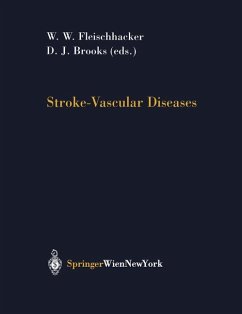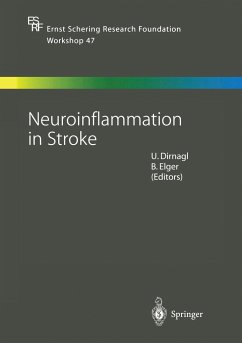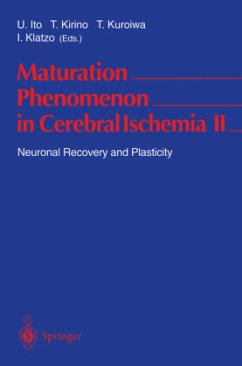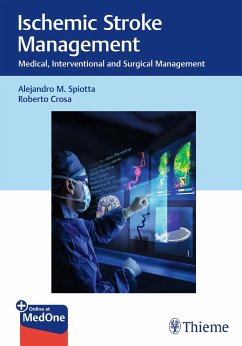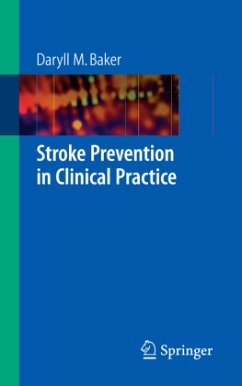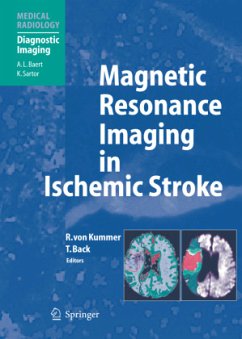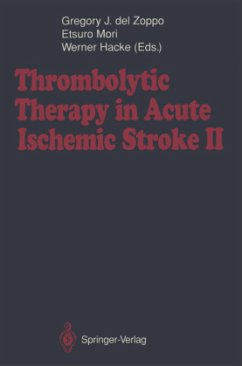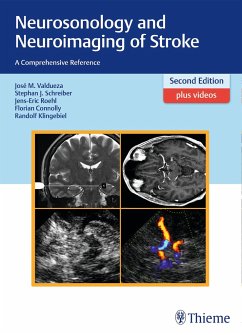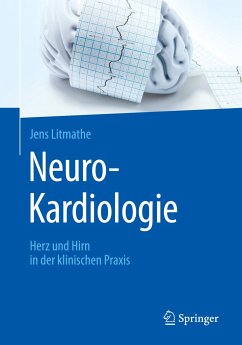Nicht lieferbar

Neuroinflammation in Stroke
Versandkostenfrei!
Nicht lieferbar
Eine neue Perspektive: Psychische Störungen neuropsychologisch betrachtet
Die Neuropsychologen Stefan Lautenbacher und Siegfried Gauggel führen unter Mitarbeit renommierter Kollegen ein in die Anwendung neuropsychologischen Wissens bei psychischen Störungen:
- Was muss ich als Psychologe/Psychiater über die Neuropsychologie psychischer Störungen wissen?
- Kognition, Motivation, Emotion und Verhalten: Welche Dysfunktionen gibt es in diesen Funktionsbereichen bei psychischen Störungen?
- Neuropsychologische Diagnose und Therapie in der Psychiatrie: Was ist anders als in der Neurologie? Für Psychologen und Psychiater aufbereitet: - Bildgebende Verfahren bei psychischen Störungen
- Neuropsychologische Wirkungen und Nebenwirkungen von Psychopharmaka - Hormonelle Einflüsse auf neuropsychologesche Leistungen
- Neuropsychologische Therapie psychischer Störungen Störungskapitel vertiefen die neuropsychologischen Aspekte bei: - Schizophrenie und affektiven Störungen,
- Angst- und Zwangsstörungen, - Posttraumatischem Stresssyndrom (PTSD),
- tiefgreifenden und umschriebenen Entwicklungsstörungen,
- Aufmerksamkeitsdefizit-/Hyperaktivitätssyndrom (ADHD),
- Alkohol- und Substanzmissbrauch, - Demenz und
- Essstörungen. Neuropsychologie in Psychiatrie und Psychotherapie Grundlagen
- Diagnostik
- Therapie
Die Neuropsychologen Stefan Lautenbacher und Siegfried Gauggel führen unter Mitarbeit renommierter Kollegen ein in die Anwendung neuropsychologischen Wissens bei psychischen Störungen:
- Was muss ich als Psychologe/Psychiater über die Neuropsychologie psychischer Störungen wissen?
- Kognition, Motivation, Emotion und Verhalten: Welche Dysfunktionen gibt es in diesen Funktionsbereichen bei psychischen Störungen?
- Neuropsychologische Diagnose und Therapie in der Psychiatrie: Was ist anders als in der Neurologie? Für Psychologen und Psychiater aufbereitet: - Bildgebende Verfahren bei psychischen Störungen
- Neuropsychologische Wirkungen und Nebenwirkungen von Psychopharmaka - Hormonelle Einflüsse auf neuropsychologesche Leistungen
- Neuropsychologische Therapie psychischer Störungen Störungskapitel vertiefen die neuropsychologischen Aspekte bei: - Schizophrenie und affektiven Störungen,
- Angst- und Zwangsstörungen, - Posttraumatischem Stresssyndrom (PTSD),
- tiefgreifenden und umschriebenen Entwicklungsstörungen,
- Aufmerksamkeitsdefizit-/Hyperaktivitätssyndrom (ADHD),
- Alkohol- und Substanzmissbrauch, - Demenz und
- Essstörungen. Neuropsychologie in Psychiatrie und Psychotherapie Grundlagen
- Diagnostik
- Therapie
Stroke is a major cause of death and disability in industrialized countries. To date, the medical need of efficient therapy for this de vastating cerebrovascular disorder remains unmet. During the last decades, the development of pharmacological stroke therapies was aimed at improving patient outcome by restoration of cerebral blood flow or protection from acute neuronal cell death. Almost all of The participants of the workshop VI Preface these appraaches targeted the very early events after vascular occIu sion. However, primarily for logistical reasons, only a small portion of strakes can be treated within 6-10 h after the insult. In recent years it has been recognized that strake pathophysiology is a dynamic pracess, and that delayed pracesses, which occur dur ing the days and weeks following arterial occIusion, may lead to further deterioration or to impairment of recovery and rehabilitation in subacute and chranic stages. Evidence is accumulating that neu rainflammation is a major player in these delayed pathophysiologi cal pracesses. While some components of neurainflammation such as removal of cell debris and release of traphic factors may support recovery pracesses, others such as the generation of free radicals and other cytotoxic mediators are deleterious for brain tissue after isch emia. Thus, neurainflammation after strake can be considered a dou ble-edged sword, having potentially both detrimental and beneficial effects. As in other inflammatory reactions in the body, the cellular and humoral interactions are highly complex in the setting of neu rainflammation.




